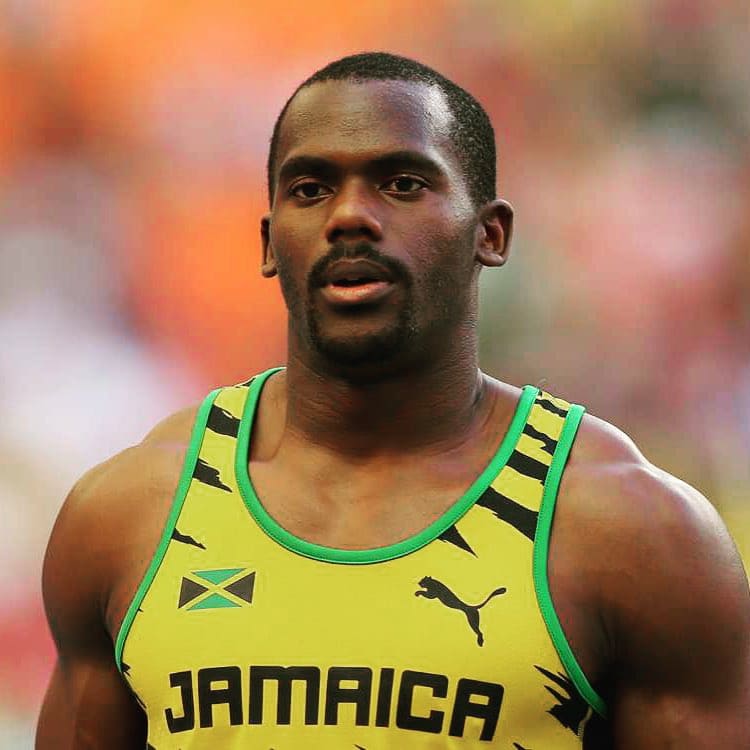The use of prohibited substances in athletics demonstrates the dark side of the sport. It’s an issue that runs deep and despite having stiff penalties, some athletes still take the risk and use them. Some who’ve been caught claim that it happened accidentally, while others have a track record of doping.
Jamaica, an athletics powerhouse, has been rocked by doping many times. In this post, we list Jamaican athletes who’ve failed drug tests.
Become an insider. Subscribe to our newsletter for more top trending stories like this!
Asafa Powell
In 2013, the Jamaican sprinter tested positive for oxilofrine, a stimulant that’s banned by World Athletics. After his failed drug test, the former 100m world record holder claimed he didn’t know the anti-doping rules.
Additionally, he claimed that his former trainer gave him supplements that led to this positive test. One of the supplements he used was Epiphany D1. Powell was suspended for 18 months.
Sherone Simpson
The Jamaican anti-doping panel banned Sherone after she tested positive for using oxilofrine. The 4 by 400m gold and silver medalist blamed her trainer for giving her the supplements that contained the substance.
Sherone said that she looked up the supplement Epiphany D1 but nothing raised an eyebrow. However, the panel said Sherone was negligent and should have done due diligence.
Nesta Carter
In 2016, Nesta Carter tested positive for a banned stimulant, Methylhexanamine. This came after retesting the blood samples from the 2008 Olympics in Beijing. The substance is found in supplements and had previously been part of the World Anti-Doping Agency (WADA) prohibited substances.
It was reclassified and listed as a ‘specified substance’. He was banned and stripped of his 4 by 400m relay gold medal he won alongside his teammates, including Usain Bolt.
Veronica Campbell-Brown
Veronica Campbell-Brown tested positive for the use of a banned diuretic hydrochlorothiazide. It’s classified as a masking agent. The 100m and 200m sprinter used hydrochlorothiazide in a cream applied on an injury.
The Jamaican Athletics Administration Association (JAAA) found her guilty of making a doping violation and suspended her. However, she appealed her ban was lifted as she didn’t use hydrochlorothiazide for performance enhancement.
Join our Spotcovery Global Black Community Facebook Group for early access to exclusive content and to share in a lively discussion.
Steve Mullings
In 2011, the sixth fastest man over the 100m distance race was banned for life after a second doping violation. Steve Mullings’s first offence was in 2004 when he had elevated testosterone levels in his blood. He served a two-year ban.
His second doping offence involved using banned diuretic furosemide, a masking agent that indicated he might have used other drugs. The Jamaican Anti-Doping Disciplinary panel handed him a life ban. It said that:
Become an insider. Subscribe to our newsletter for more top trending stories like this!
“A clear and strong message must be sent to every athlete in Jamaica and elsewhere that prohibited substances will not be tolerated in sports.”
Shelly-Ann Frayser-Pryce
In 2010, World Athletics handed the Olympic 100m champion a six-month ban after she failed a drug test. Fraser-Pryce tested positive for oxycodone, which is classified as a narcotic.
The sprinter underwent tooth surgery, which is why she ended up with the substance in her body. As oxycodone isn’t a performance-enhancement drug or a masking agent, Frayser-Pryce was given a lenient suspension.
Yohan Blake
In 2009, Yohan Blake failed a drug test after a routine check ahead of the World Championships that year. He tested positive for methylhexanamine but didn’t receive a ban at the time as the substance wasn’t on WADA’s list. However, after his hearing in front of the Jamaican Sports Ministry, he was banned for three months.
Jamaica has a long-standing problem of doping. These are just some of the athletes who’ve failed drug tests. What should be done to reduce doping in the sport significantly?
If you want insights into drug use in sports, go to Amazon. They have a collection of books that delve deeper into this topic.
Nearly 80% of consumers visit directories with reviews to find a local business. List your business for free in our exclusive Spotcovery Black-Owned Business Directory.
Spotcovery offers unique and fresh daily content on Black culture, lifestyle, and experiences. We talk about everything black, black people, black-owned and black-owned businesses. We also deliver authentic and relevant content that will inform, inspire and empower you! The future of black media is critical to today’s black experience! Our primary audience includes African Americans, Africans, Afro-Caribbean, and people of African heritage. Black culture is for the culture!
Become an insider. Subscribe to our newsletter for more top trending stories like this!





